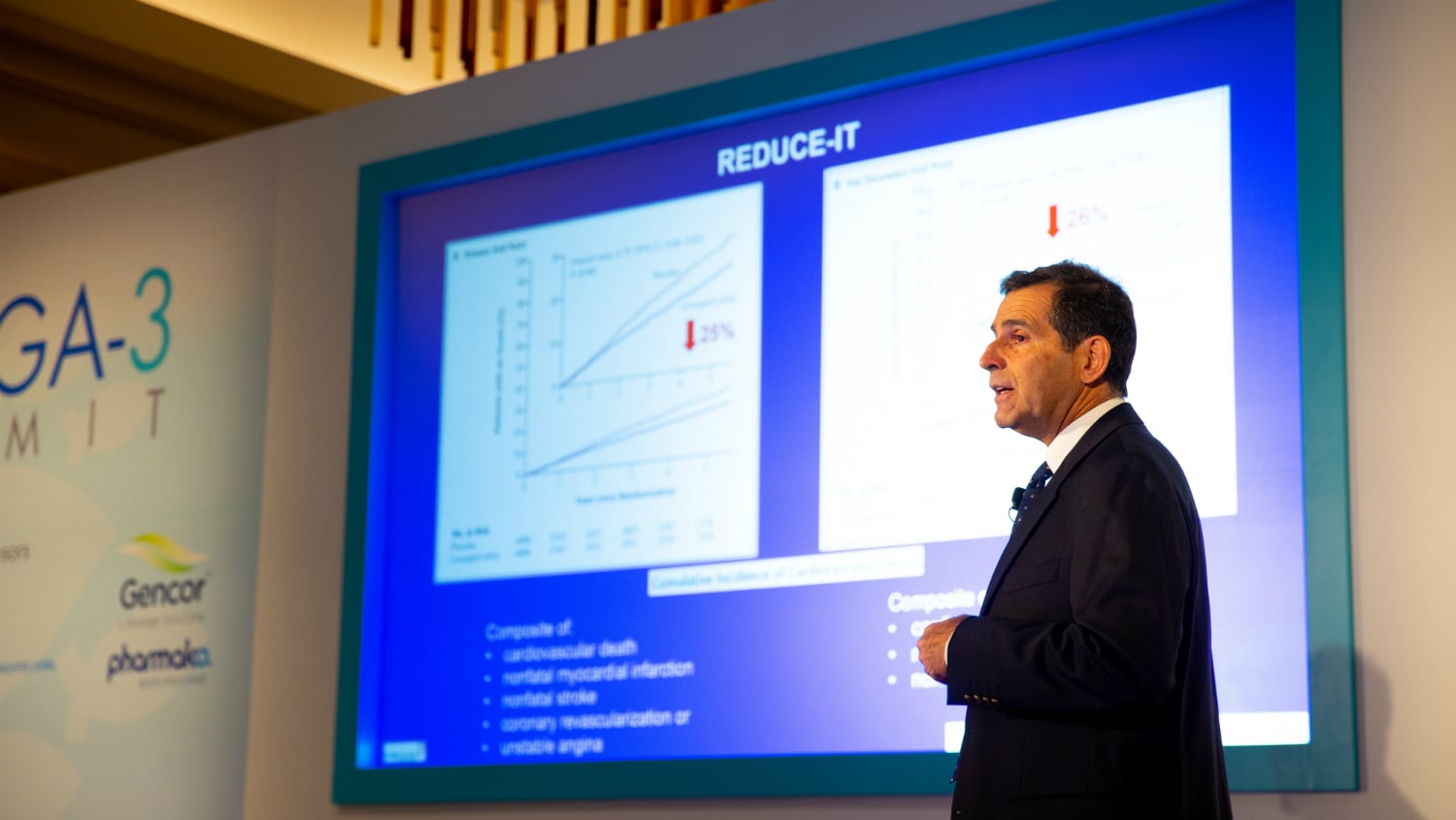Researchers at Capital Medical University in Beijing conducted an RCT to determine the impact of diet on the inflammatory response in middle-aged and elderly hypertensive patients who were overweight or obese.
They recruited 30 overweight and obese stage one hypertension patients aged 45 to 75, and randomly assigned them equally to either a control group or intervention group.
Those in the intervention group were given 100g of a powdered food supplement daily as a meal replacement, while the control group maintained their regular dietary habits.
Intervention against inflammation
The researchers observed them over the course of six weeks, during which they measured the patients' blood pressure, inflammatory marker levels and energy intake before and after the study.
At the end of the six weeks, the researchers reported that in the intervention group, the patients' diet composition had changed significantly — their intake of proteins, dietary fibre, monounsaturated fat, and polyunsaturated fat had risen significantly, and their total energy intake "trended towards an increase".
Adiponectin was also reported to have increased significantly, while systolic blood pressure decreased significantly in the intervention group. Diastolic blood pressure also displayed a "decreasing trend".
In the control group, however, the total energy intake was significantly reduced, as were the levels of nuclear factor-kB (NF-kB), soluble intercellular adhesion molecule-1 (sICAM-1) and high sensitivity C-reactive protein (hs-CRP).
Still, the researchers did not observe any significant change in the inflammatory marker levels or blood pressure within the control group.
They wrote that these results suggested that dietary improvements were more important than merely restricting energy intake in middle-aged and elderly hypertensive patients.
In this particular study, the dietary supplement used was rich in grains and beans, and was higher in protein, dietary fibre, and unsaturated fatty acid content than a meal consisting of white rice and pickles, for instance.
In the control group, however, the researchers attributed the total reduction in energy intake to seasonal factors.
They wrote: "The study period spanned from July to August, when the temperature and humidity in Beijing are very high.
"These factors likely affected the appetite of the participants and reduced their total energy intake; however, their dietary composition did not change in terms of the proportion of protein, dietary fibre, and unsaturated fatty acids.
"In contrast, the energy intake in the intervention group showed an increasing trend due to the consumption of the supplement, which is rich in nuts and seeds and can improve appetite. Therefore, in the IG, the participants had a higher energy intake."
They then explained the mechanisms behind the anti-inflammatory and anti-hypertensive effects of the dietary supplement: firstly, the increase in protein intake and decrease in carbohydrate intake due to the consumption of the dietary supplement raised the patients' level of ketones, which may have in turned attenuated oxidative stress and improved vascular endothelial function.
Secondly, the supplement's high fibre content managed to stabilise blood glucose levels and lower in vivo cholesterol absorption.
Thirdly, unsaturated fatty acids could have regulated the patients' blood lipid levels, which could have in turn improved endothelial function, reduced their blood vessels' inflammatory reaction, and helped to lower blood pressure.
Higher standards for future studies
The researchers wrote that the study’s small sample size and relatively short test period could have been limiting factors in the RCT.
In addition, since the study took place over more than one season, seasonal changes could have influenced the participants' appetite and therefore, the results.
They also said that although those in the intervention group had consumed the dietary supplement, their diets were not on par with the standards of a high-protein, low-carbohydrate diet, a detail that could have "compromised the accuracy of the results".
As such they acknowledged that further research was needed to validate the findings of the current study.
In conclusion, they wrote: "In our study, the energy intake in the intervention group did not change; however, the diet composition improved. In the control group, the energy intake decreased significantly; however, the diet composition did not improve.
"Our experiment was carried out in the summer, and the weather had an important impact on the diet. Additional studies involving a reduced-energy diet with simultaneous dietary composition improvements are required.
"Further studies will be conducted, in which the participants will be provided with all of their food to control the total energy intake and improve their diet composition through the consumption of a dietary supplement, and then the changes in inflammatory marker levels and blood pressure will be observed.
"In summary, in overweight and obese middle-aged and elderly urban residents with hypertension, improving diet composition by consuming a special dietary supplement can reduce the expression of inflammatory markers and decrease blood pressure.
"The food powder supplement may also have an anti-atherosclerotic effect in hypertensive patients. The consumption of a dietary supplement may be recommended as a strategy for the control of hypertension."
Source: Clinics
https://doi.org/10.6061/clinics/2019/e890
"Effects of a dietary supplement on inflammatory marker expression in middle-aged and elderly hypertensive patients"
Authors: Jia Wang, et al.



